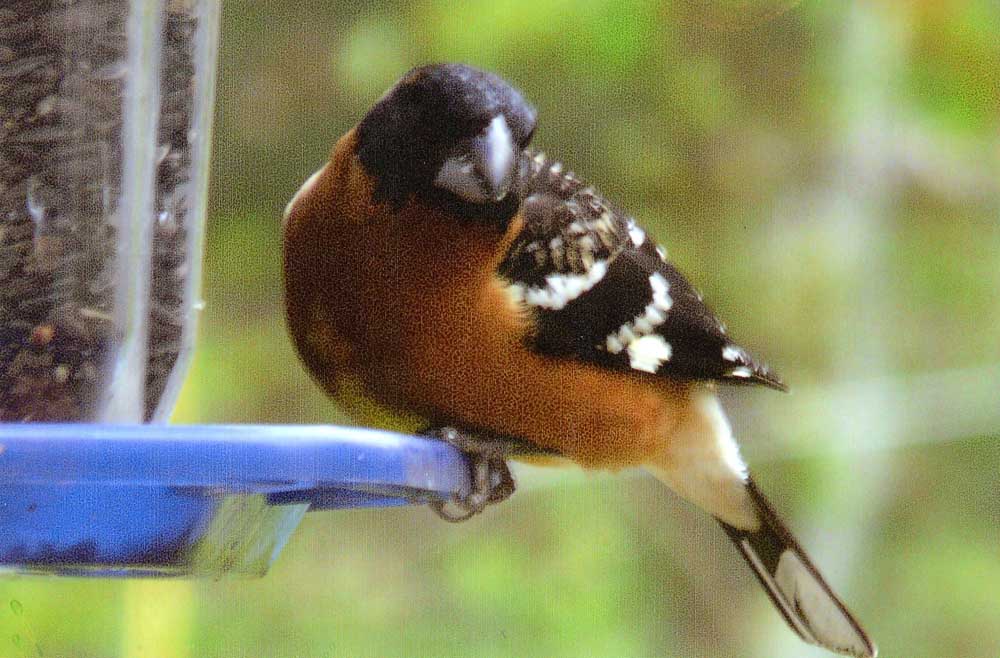The smooth sounds of the black-headed grosbeak
Published 6:34 am Tuesday, March 15, 2016

- The Black-headed grosbeak
I took this photo of a male black-headed grosbeak at my feeder when we lived on Hurricane Creek. Grosbeak means “big bill”. Adult birds eat mostly fruits and berries but they also feed their young insects such as beetles. The males sing a very mellow love song that also is a warning to other birds to stay away from their nests. They usually build their nests just 10 or 15 feet from the ground and lay three or four eggs in a sloppily constructed nest of coarse twigs. Their young also have large beaks and an even larger appetite. They have to be fed every 10 or 15 minutes. Here in Wallowa County these grosbeaks especially feed on elderberries and also are fond of mountain ash berries in people’s front yards.
Black-headed grosbeaks are found in southern British Columbia and south into California, but they spend their winters in the tropical forests of Mexico. They migrate back to their breeding grounds in April in their bright new plumage and the males start singing continuously, even when they take turns incubating the eggs. That is the best way to locate their nests — when the males are singing while on duty. They stop singing in September before migrating and the males lose some of the luster of their bright feathers while turning mostly brown.
I have never seen black-headed grosbeaks in large flocks — they usually came to our feeders in small groups of five or six. They don’t seem to have much fear of humans, and they are known to fly down on your picnic tables and help themselves to your butter dish. These birds are a birdwatchers delight, both in beauty and their melodious song.






